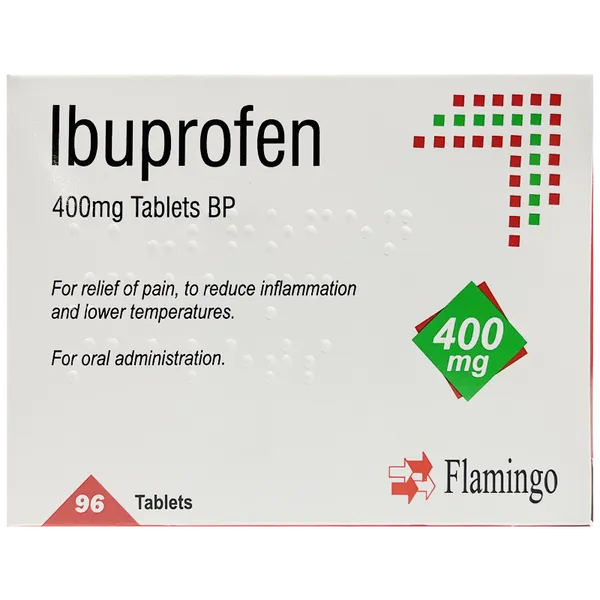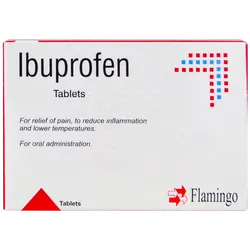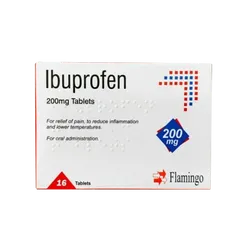Do NOT take Ibuprofen Tablets 400mg Pack of 96 if you:
- Are allergic to ibuprofen, acetylsalicylic acid (aspirin), other similar pain-relieving medicines (NSAIDs), or any other ingredients listed.
- Suffer from or have a history of stomach or duodenal ulcers, bleeding, or perforation of the digestive tract.
- Have severe kidney, heart, or liver failure.
- Suffer from cerebral haemorrhage or other active bleeding.
- Suffer from disturbances in the formation of blood of unknown origin.
- Are severely dehydrated.
- Are in the last trimester of pregnancy.
Consult your doctor or pharmacist before taking Ibuprofen Tablets 400mg Pack of 96 if you:
- Suffer from certain skin diseases or autoimmune diseases (e.g., Systemic Lupus Erythematosus).
- Suffer from chronic inflammatory bowel diseases (e.g., Crohn's disease, ulcerative colitis).
- Have kidney or liver problems.
- Have heart problems, including heart failure, angina, or high blood pressure, or if you have had a heart attack or stroke.
- Have or have had asthma, hayfever, nasal polyps, or chronic obstructive respiratory disease.
- Have a blood clotting disorder.
- Are trying to become pregnant or are in the first or second trimester of pregnancy.
- Have recently had a major operation.
- Have porphyria.
Stop taking Ibuprofen and seek immediate medical attention if you experience:
- Black, tarry stools or blood-stained vomit (signs of digestive tract ulcer with bleeding).
- Swelling of the face, tongue or throat (angioedema), severe difficulty breathing, rapid heartbeat, or a severe fall in blood pressure.
- Severe allergic reactions with shortness of breath or wheezing.
- Severe skin rashes with blisters on the skin, especially on the legs, arms, hands and feet (e.g., erythema multiforme, Stevens-Johnson's syndrome, toxic epidermal necrolysis, DRESS syndrome, acute generalised exanthematous pustulosis).
- Chest pain, which can be a sign of a potentially serious allergic reaction called Kounis syndrome.
- Signs of meningitis (headache, stiff neck, fever, nausea, vomiting, disorientation).
Possible side effects include (but are not limited to):
- Very common: Heartburn, abdominal pain, indigestion.
- Common: Disturbances in the digestive tract such as nausea, vomiting, diarrhoea, flatulence, constipation.
- Uncommon: Visual disturbances, headache, dizziness, skin rash, asthma attacks.
- Rare: Depression, confusion, hallucinations.
- Very rare: Disorders of blood cell formation, ringing in the ears, inflammation of the liver (hepatitis) or pancreas.
NSAIDs may cause an increased risk of serious gastrointestinal adverse events, including bleeding, ulceration, and perforation of the stomach or intestines, which can be fatal. These events can occur at any time during use and without warning symptoms. Elderly patients and patients with a prior history of peptic ulcer disease and/or GI bleeding are at greater risk for serious GI events.
You should carefully read all product packaging and labels prior to use. Always report any side effects to your doctor or pharmacist.















